The Fourth of July is coming up, meaning many dog owners will be dealing with howling, barking, and generally anxious dogs. It’s largely believed that Independence Day is the day when the highest number of dogs run away. But just what are the dogs afraid of?
“It can be the smell. It can be the noise and the flashes of the light,” says Judy Morgan, DVM, of Dr. Judy Morgan’s Naturally Healthy Pets based in Woodstown, New Jersey. Your dog may “tremble, shake, shiver, howl, and bark — some of them get frantic.”
If you are unsure of how your new dog might react, pups that don’t cope well during thunderstorms are likely to get scared of fireworks. The good news is that there are steps you can take to help your dog. Here are nine expert-approved tips to prevent your dog from freaking out during fireworks.
1. Keep Your Dog Away From Fireworks
First of all, don’t take your dogs to fireworks shows and don’t leave them outside during fireworks. Keeping your dog inside in the evening on the Fourth of July is the best idea, especially if you fear they might not react well.
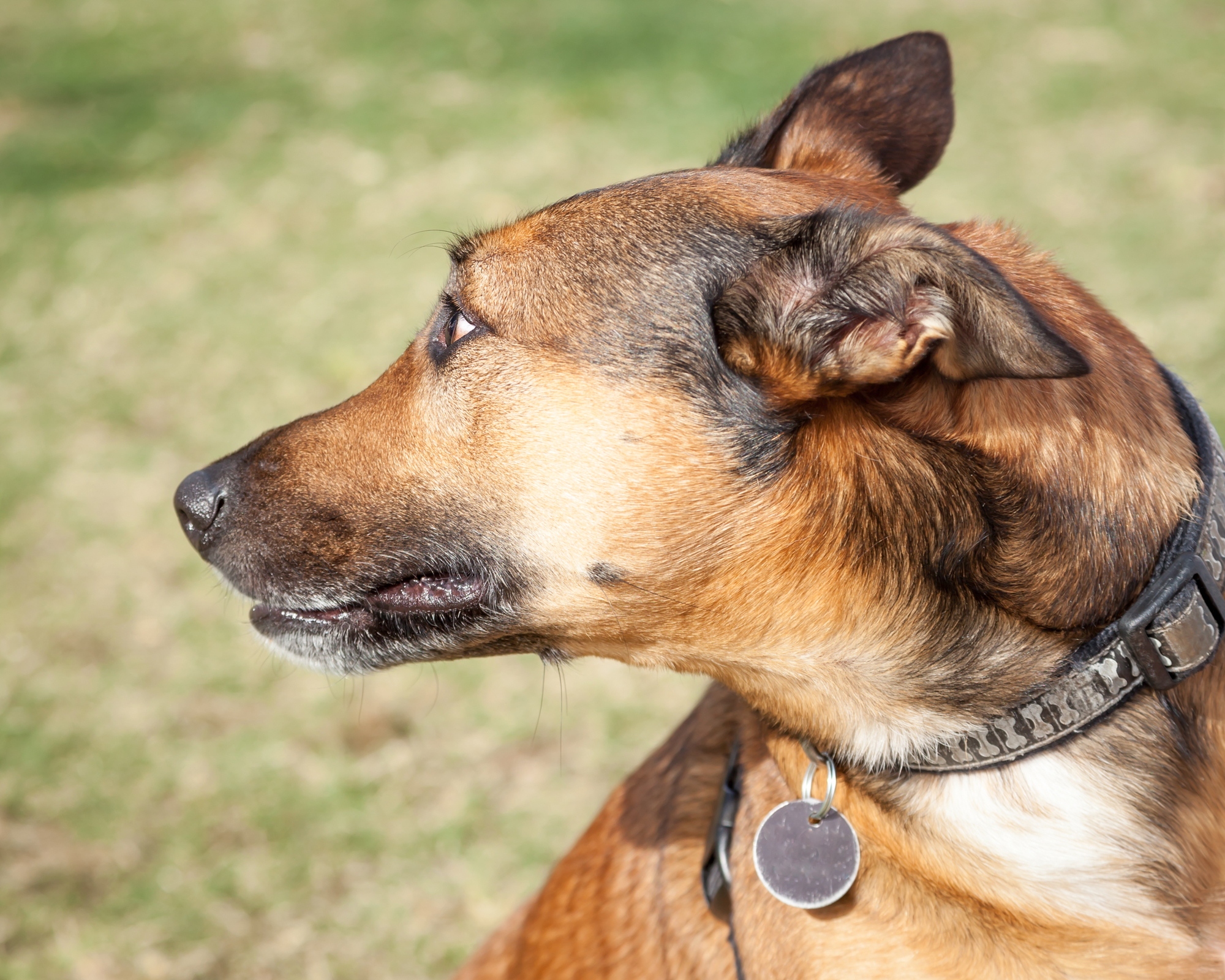
2. Make Sure Your Pet Has Proper ID
Ensure that the information on your pet’s collar is current and make sure your dog is microchipped and has a GPS device. If they escape, there’s a better chance they’ll get returned.
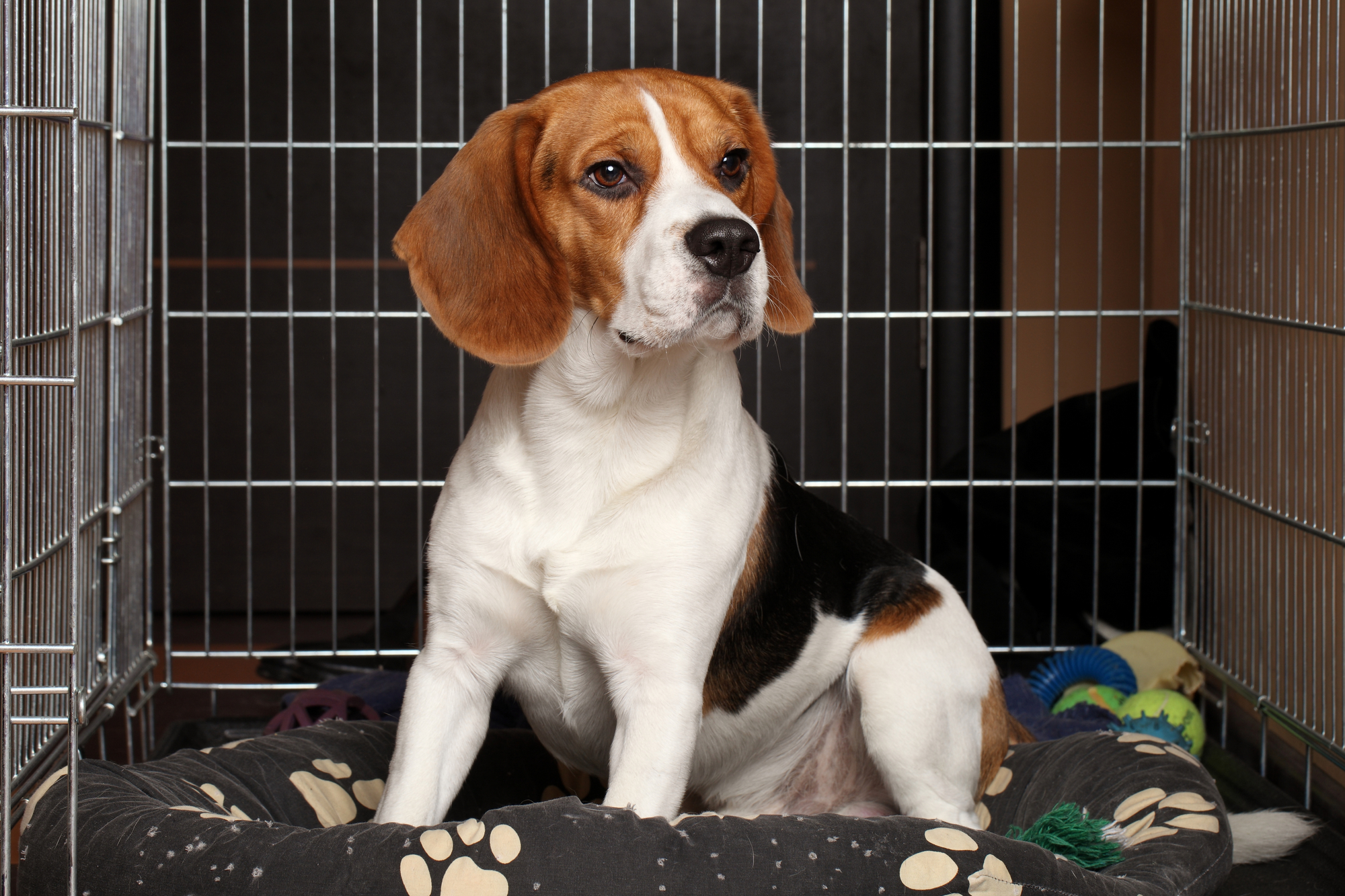
3. Create a Safe Haven For Your Dog
Creating a place where your dog will (hopefully) feel comfortable should get your pet used to a calming environment beforehand. Dogs are den animals — they’re looking for that cave to get away from it all.
Try setting up an area in a quiet space away from windows — such as a basement or a larger closet — so that they can’t hear or see fireworks. Use a crate if that’s where your dog feels safe, and make sure to provide your pup with familiar toys and treats (try freezing bone broth in ice cube trays).
4. Play White Noise
You can try leaving a fan, TV, or radio on to help mask the sounds of the fireworks. “There’s some classical music called ‘Through A Dog’s Ear’ that has been shown to have calming effects for dogs,” says Jenn Stanley, certified behavior consultant and professional dog trainer, and co-owner of Awesome Pawsabilities Pet Training & Behavior Consultations based in North Carolina.
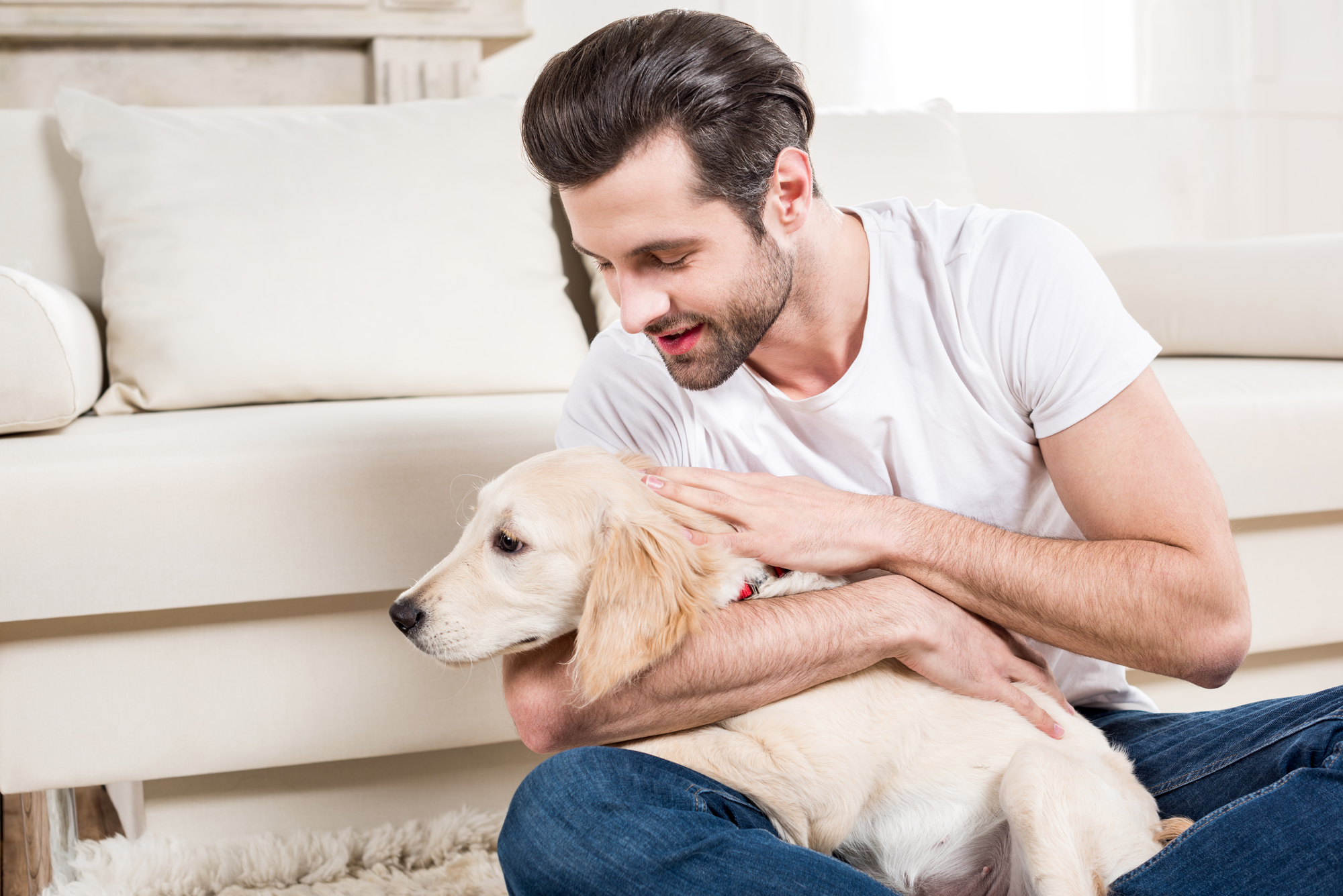 5. Comfort Your Dog
5. Comfort Your Dog
If you can, try staying home with your dog or leaving them in the hands of a trusted person.
You absolutely can and should comfort your dog if he’s afraid. The key here is in how you do so. It’s important to remain calm and use a soothing, even tone. Petting them can be comforting — long, slow, firm strokes along the length of their body are typically very soothing.
The one thing to avoid? Seeming frantic in any way, saying, “It’s OK, it’s OK, it’s OK” in a higher-than-average pitch may make your dog think that there really is something to fear. Try your best to remain calm and reassuring to help your canine companion.
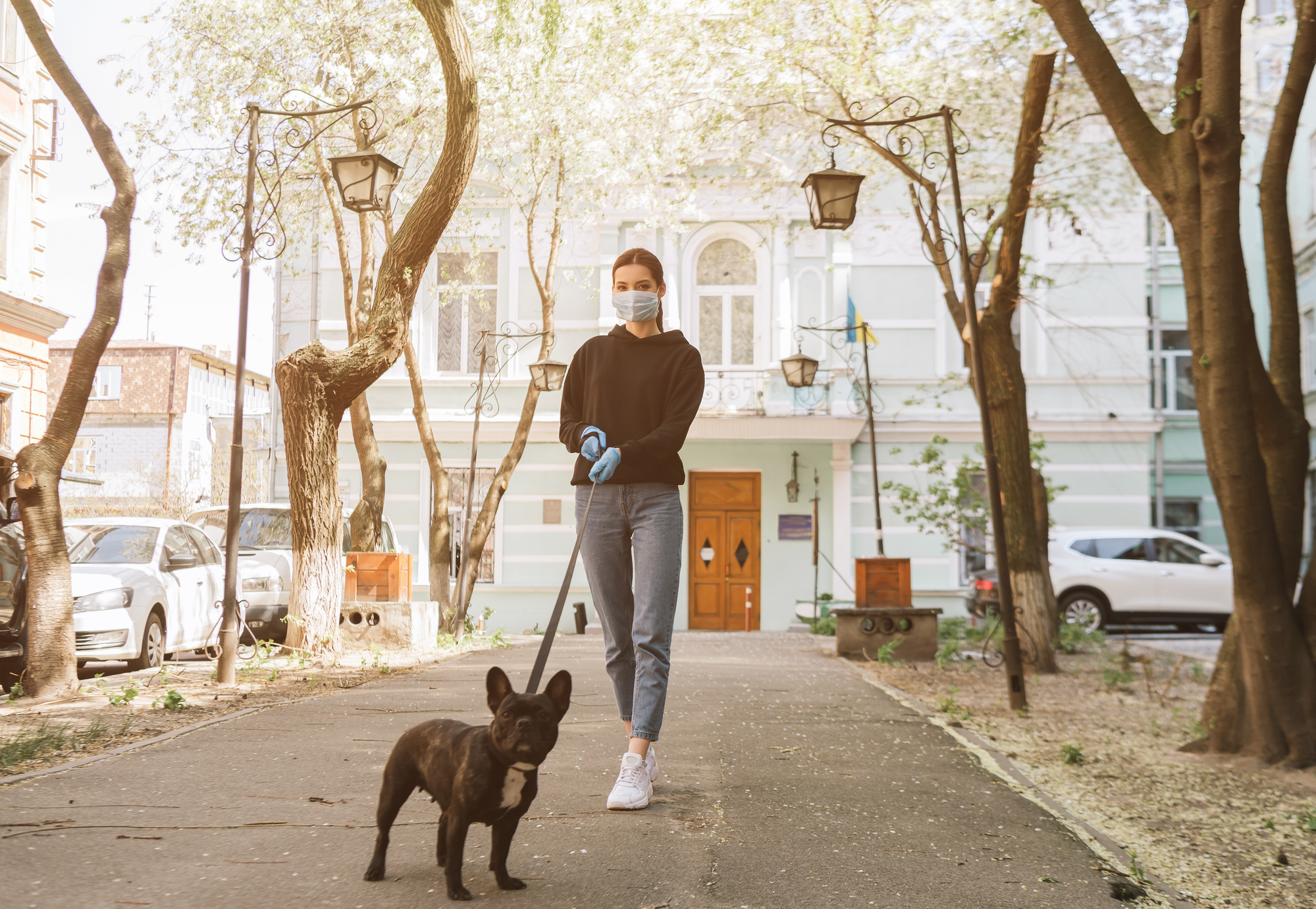 6. Walk Them Before the Fireworks Start
6. Walk Them Before the Fireworks Start
Head out for your long walk before the sun sets to increase the chances that you’ll avoid the sounds. When you do go out, you’ll want to ensure your dog is secure on a leash before your walk.
Double-check the fit of your dog’s collar or harness before going outside. A leash, even if you have a fenced-in area, is a great added safety measure to help keep your dog close to you and under control should they get startled.
7. Desensitize Your Dog to the Sounds of Fireworks
If you suspect your dog will freak out at the sound of fireworks, try playing sounds of fireworks (softly) so your dog is used to hearing them. Try pairing a video of the sounds of fireworks with a treat your dog likes, in a process called counter-conditioning.
The volume should be low enough that your dog can notice it, but does not show signs of stress like panting, pacing, leaving the area or trying to hide. We call this keeping the dog ‘below threshold,’ and it makes it possible for learning to take place. If the dog is overwhelmed, they’re looking to escape the situation and are not going to be nearly as capable of learning that it’s not a threat. Increase the volume gradually, varying the source of the sound, and using different recordings.
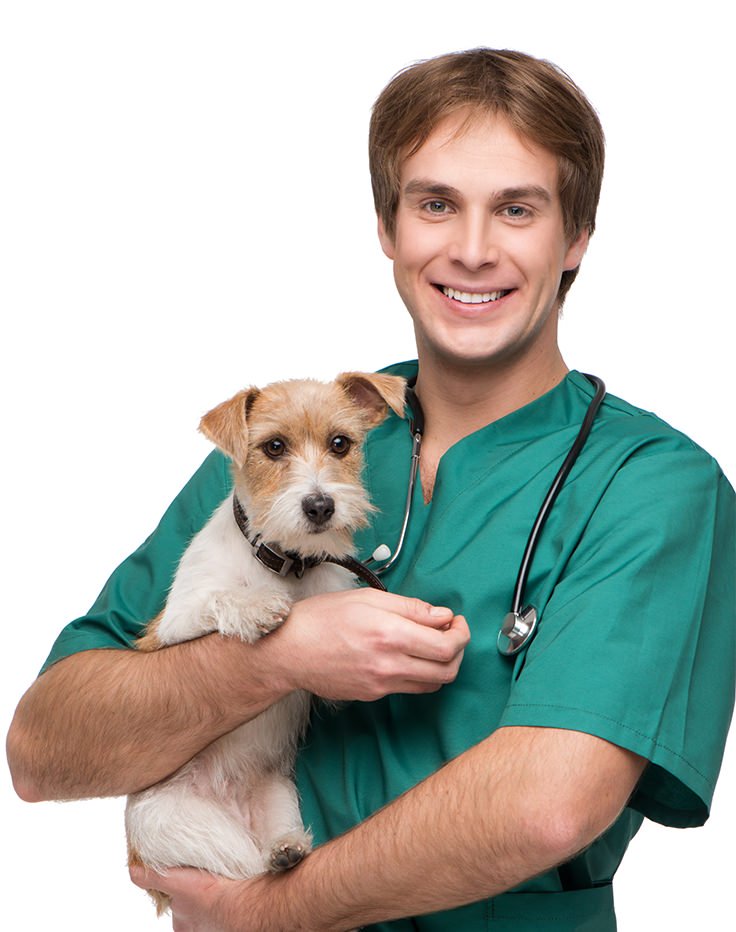 8. Talk to Your Vet
8. Talk to Your Vet
If your pet’s anxiety is severe, consider booking an appointment with your vet so you can discuss a medication that could help soothe your dog’s anxiety. If you have a dog that is bad enough and you haven’t done any prep work, and you know your pet is going to be in panic, try therapeutic treatment.
9. Consider Hiring a Trainer
If fear is negatively impacting your pup’s life, consider enlisting the expertise of a trainer. You can work with a trainer or behavior consultant to desensitize your dog to fireworks or other fears gradually — it’s never too soon to start planning for next year.
Many pet owners will celebrate July 4th with barbeques, pool parties, and fireworks, but they may not realize these seemingly harmless traditions can have catastrophic consequences for their four-legged family members.
Losing your pet is heartbreaking, but there are other dangers lurking in your own backyard that might not cross your mind as you celebrate this 4th of July. It’s critical that pet owners consider their animals’ well-being during holiday celebrations, and when enjoying the outdoors all season long.
Below are the top five tips pet owners need to know to safely enjoy the dog (and cat) days of summer:
1. Safe Travels.
Traveling can be highly stressful for our pets. If you’re planning a road trip, prep your pet in advance by taking short rides in the car and getting them used to riding in a crate or car harness. “Pet owners should never leave their animals unattended in a parked vehicle,” said Dr. Louise Murray, vice president of the ASPCA Animal Hospital. “Parked cars, even with windows open, become very hot in a short amount of time and could lead to heatstroke or death.” Alert others to the dangers of leaving pets in hot cars with friends and family on your social media networks.
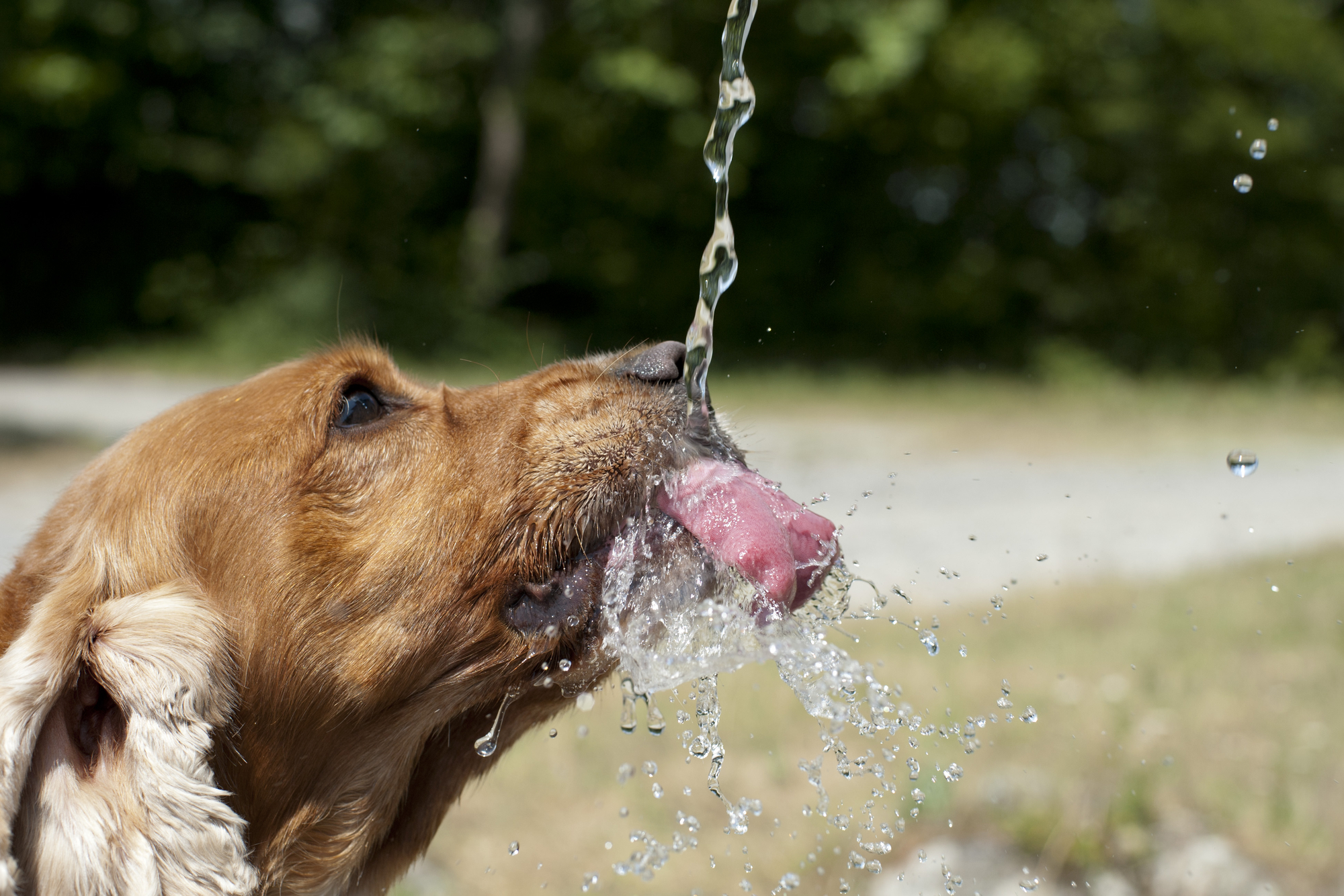
2. Keep Cool.
Dogs and cats can become dehydrated quickly, so give them plenty of water when the weather is hot. Always make sure your pet has a shady place to escape the sun and don’t let your dog linger outdoors, especially on hot asphalt. Being so close to the ground, your dog’s body can heat up quickly, and sensitive paw pads can get burned.
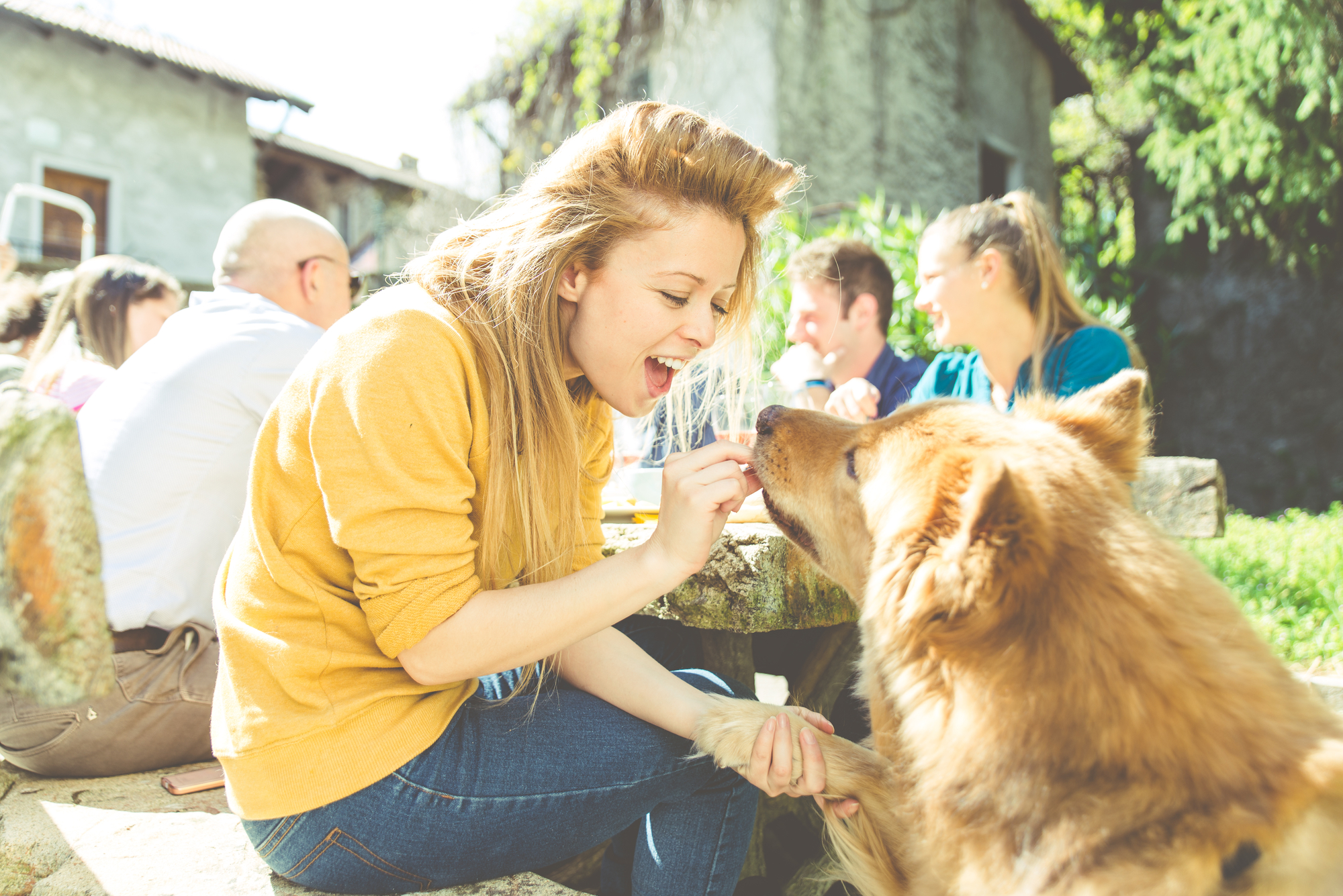
3. Watch What They Eat.
Summertime can be perfect for backyard barbecues or parties, but the food and drinks should be served only to people, not pets. Keep alcoholic beverages away from pets, and remember that any change of diet – even just treating them to a bite of your festive food – may give your dog or cat severe digestive ailments. Make sure to avoid raisins, grapes, onions, chocolate and products with the sweetener xylitol, all of which are toxic to pets.
4. Beware of “High-Rise Syndrome.”
During warmer months, many animal hospitals and veterinarians across the country see an increase in injured animals as a result of “High-Rise Syndrome,” which is when pets fall or jump out of windows and are seriously or fatally injured. Keep all unscreened windows in your home closed and make sure screens are tightly secured.
5. Love the Leash.
Warm weather can inspire longer walks, and while this is exciting for both dog and owner, it’s important that dogs are always kept on leash – with collars and up-to-date ID tags and microchips – to protect them from getting loose and injuring themselves or others.
We hope these tips on keeping your furry friends safe and worry-free during the 4th of July celebrations will ease your pet and you so that you can enjoy the celebrations to the fullest extent!
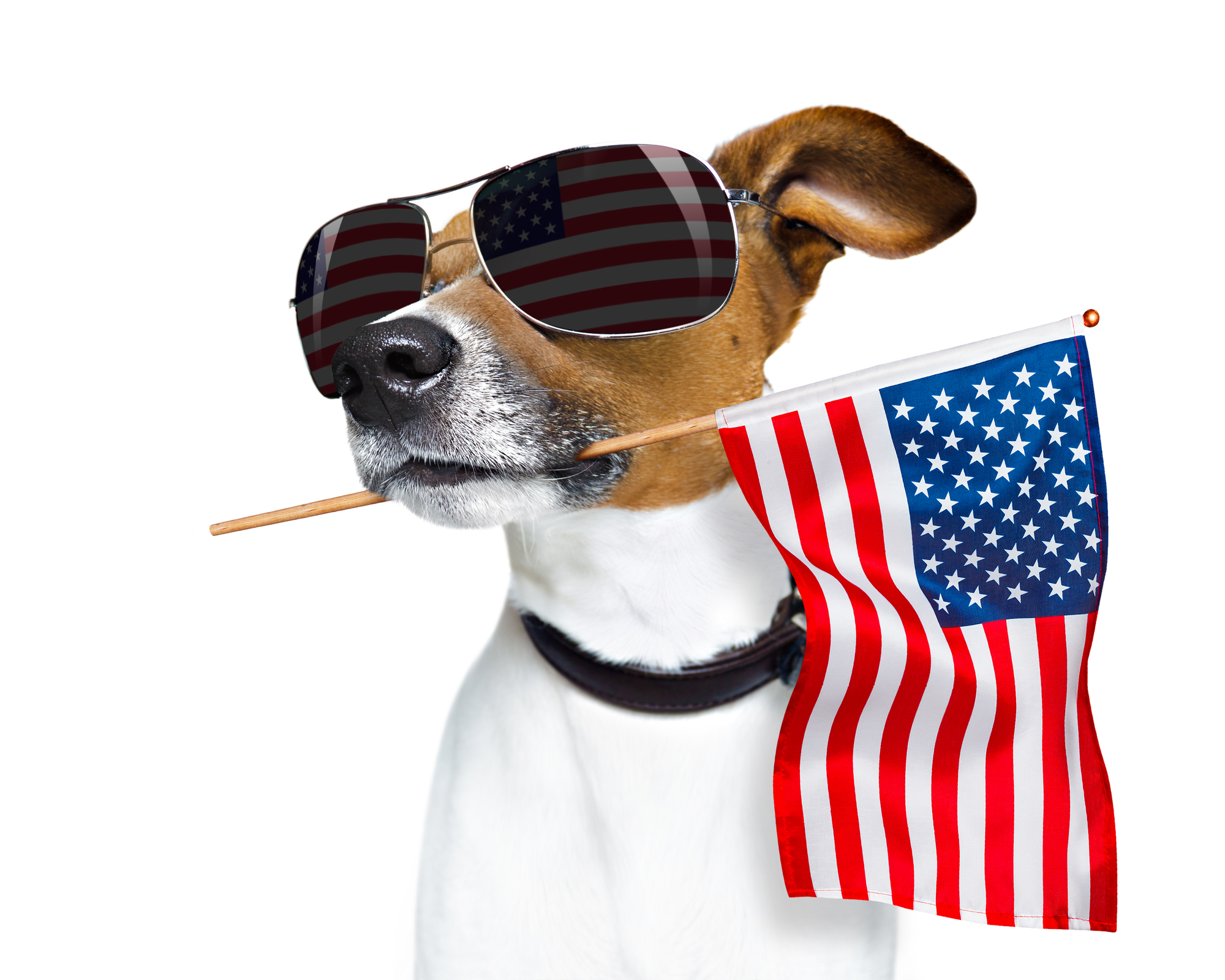
HAVE A HAPPY & SAFE 4th!


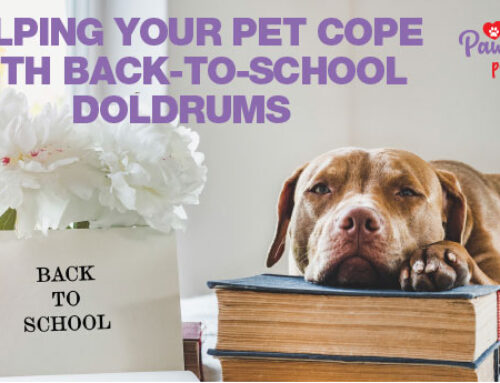
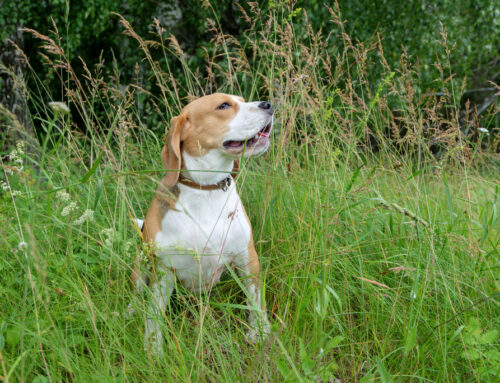
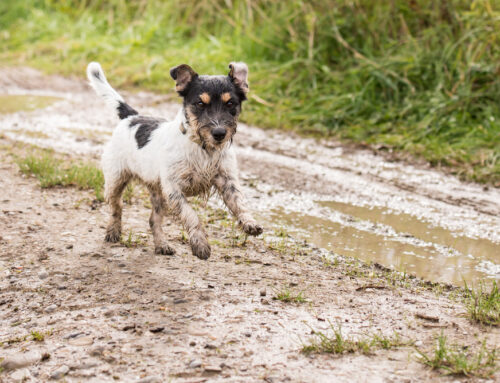
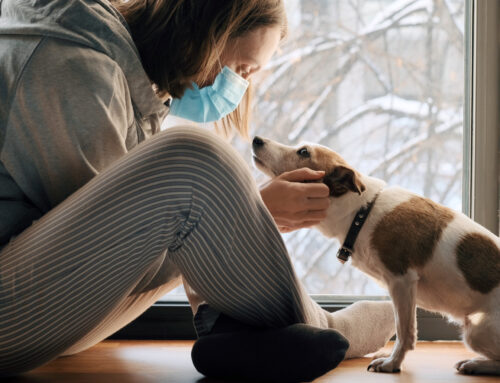
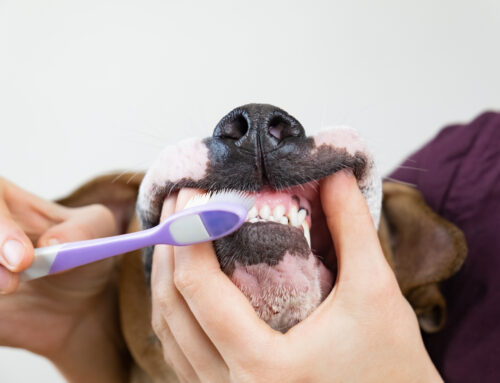
Leave A Comment